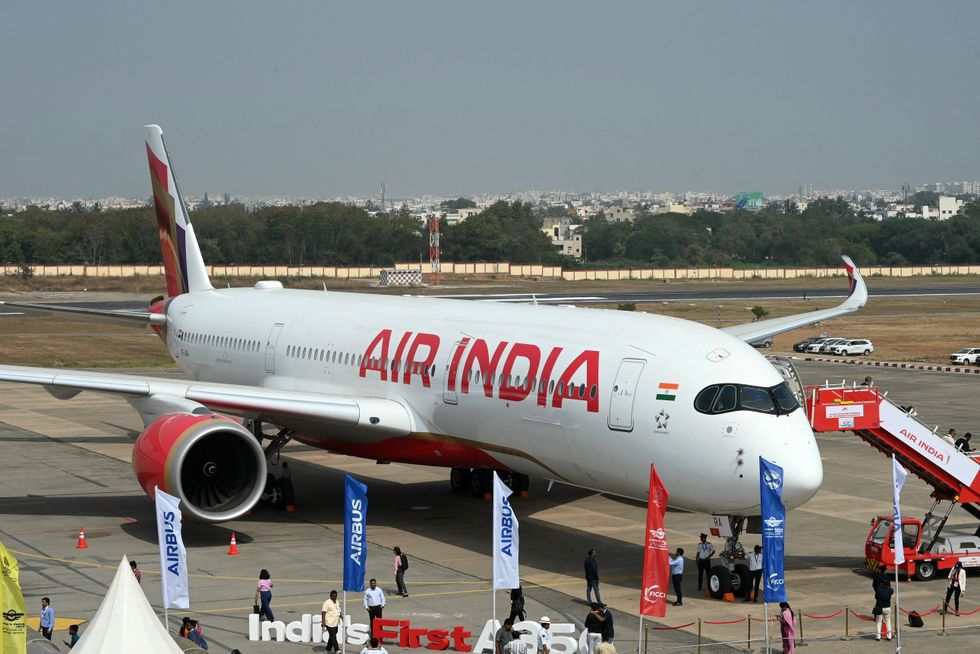AIRCRAFT maker Airbus plans to significantly ramp up its annual sourcing of components and services from India to reach $2 billion (£1.54bn) by 2030, its CEO Guillaume Faury has said.
Describing India as one of the most important markets for Airbus in terms of growth, Faury said the challenge for the aircraft maker is to support the speed of the growth of the aviation industry in India.
“We are growing the supply base, we are procuring $1.2bn (£928.8m) to $1.3bn (£1bn) (worth of components and services) from India today and we will be at around $2 bn (£1.54bn) before 2030,” he said.
His remarks came during an interaction with Indian journalists on the sidelines of the Airbus Summit 2025 in Toulouse last Tuesday (25).
Airbus has a significant presence in India, with 3,600 employees across its various sites and supports more than 15,000 jobs through its supply chain, as per its website.
The Airbus order book has more than 1,300 aircraft to be delivered to Indian carriers. IndiGo alone has more than 900 planes on order, including wide body A350s.
There are orders for 50 A350s from Air India and 30 from IndiGo.
Currently, 700 Airbus planes are in operation in India, one of the world’s fastest growing civil aviation markets.
Faury said Airbus is ramping up sourcing from India, across the board, including parts, sub-system manufacturing, airframe and highly-loaded components.

For Airbus, currently the sourcing of components and services annually is worth an estimated $1.4bn (£1.08bn) from India “I see a lot of competitiveness and growth of business is on highly s o p h i s t i c a t e d systems which can be both reengineered and optimised by engineering in India and manufactured in India. That is what we are doing with Dynamatic, Tatas and Mahindra,” Faury said.
Last year, Airbus awarded the contract to manufacture and assemble its A220 Family aircraft doors to Bengalurubased Dynamatic Technologies.
Among other ventures in India, Airbus has a Final Assembly Line (FAL) for C295 military transport aircraft in a joint venture with Tatas and a FAL for H125 helicopter will also be set up in the country.
Asked if Airbus will set up a final assembly line for civilian aircraft in India, Faury said such a facility in the country may be for the next generation of aeroplanes.
“For the current generation of aeroplanes, I don’t think it makes sense for Airbus, I don’t think it makes sense for India as well.
“India should play on its strengths and not try to replicate what others have been doing in the past. India is really a fantastic asset in engineering, IT, systems and software, I think that is where India has a win-win from both sides,” he added.
“Our challenge at Airbus is to support the speed of growth of the aviation industry in India... the growth trajectory of India is significantly ahead of that of the world. The challenges are with respect to expertise, HR, hiring, training... (and maintaining) the growth in the best possible conditions.”
With rising air traffic, airlines are looking to expand their fleet and network, but persisting supply chain constraints have resulted in inadequate availability of components and subsequent delays in aircraft deliveries.
Faury said, “The demand is higher than the supply. We are pulling the supply chain reasonably as much as we can. We don’t want to pull too hard. When we pull too hard, it doesn’t deliver what we expect and we have to revise our plans down.
“We need to find the sweet spot between the demand and the supply... we want to accelerate moving forward.”
Air India CEO and MD Campbell Wilson said last month the aviation market worldwide is likely to remain “supply constrained” for another four to five years.


















